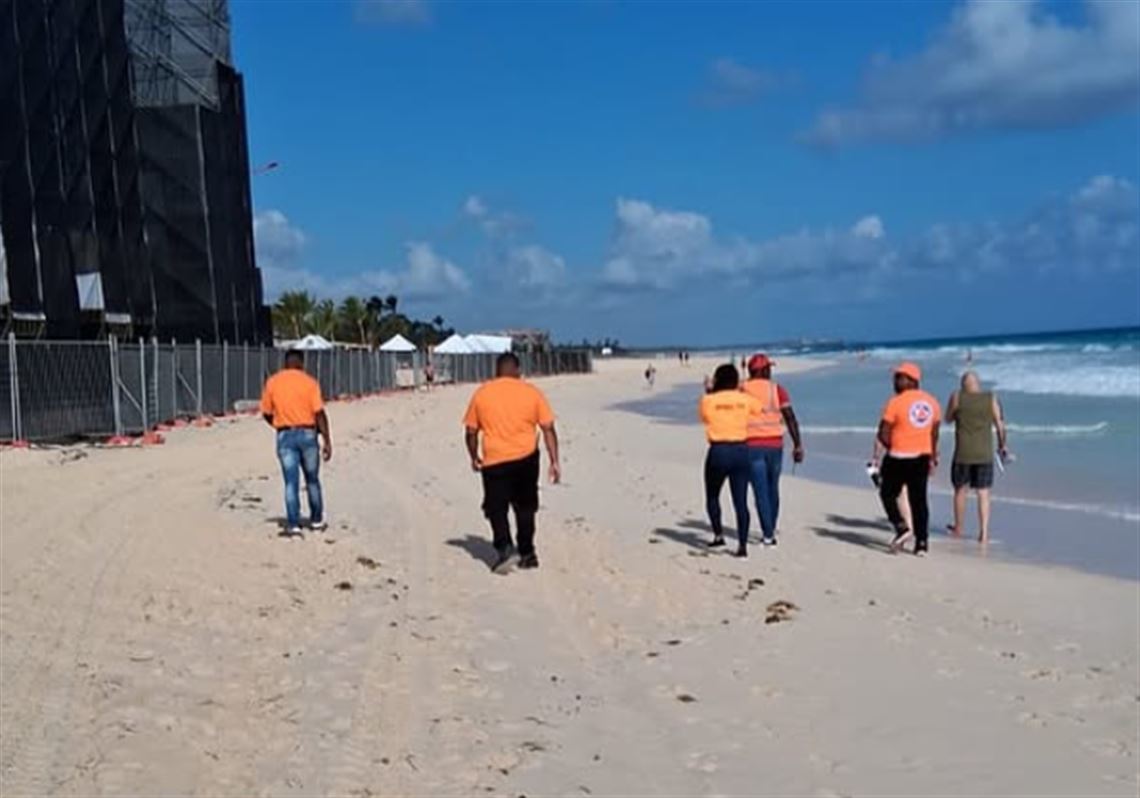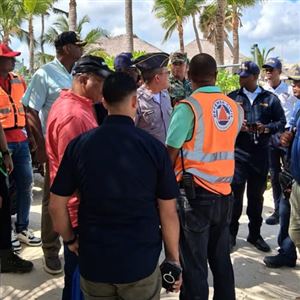The father of Sudiksha Konanki, a University of Pittsburgh student missing in the Dominican Republic since Thursday, told CNN he wants authorities in the Caribbean nation to investigate whether his daughter’s spring break disappearance could be “a case of kidnapping or human trafficking.”
“We don’t think she would be able to survive for more than three days in the water,” Subbarayudu Konanki told CNN Sunday night from Punta Cana. “I think something else might’ve happened to her.”
The 20-year-old from Loudoun County, Va., went to the Dominican Republic with a group of five other women, officials said. The group arrived last Monday, according to Dominican police, and Ms. Konanki was reported missing Thursday afternoon.
“So far, the authorities, multiple authorities here in the Dominican Republic have searched in the waters,” Mr. Konanki told CNN. “They searched using helicopters and other tools. They also searched in the near bay, bushes, trees. They went multiple times around the same area.”
The Loudoun County Sheriff’s Office said Monday afternoon that it is reviewing surveillance video and telephone records as well as continuing the “wide-ranging search efforts.” Spokesman Chad Quinn cautioned against speculation regarding what might have happened to Ms. Konanki and what might be involved.
“We caution anyone from drawing any unsubstantiated conclusions and are committed to ensuring that a thorough investigation is conducted before any conclusions are reached,” Mr. Quinn said in a statement.
According to a translated release from the Dominican police, Ms. Konanki and her friends were staying at the RIU hotel, and the Pitt student was last seen on a nearby beach shortly after 4 a.m.
Dominican authorities received a call from the U.S. Embassy alerting them to the situation Friday morning.
Since then, according to the release, investigators have searched the area near where Ms. Konanki was last seen using drones, helicopters, divers, boats and search dogs.
CNN, citing a local police source, said surveillance footage showed five women and one man leaving the beach just before 6 a.m. Thursday, Ms. Konanki “is believed to have stayed behind with a young man.” About four hours later, footage showed the man leaving the beach “with no sign of” Ms. Konanki, the source told CNN.
That man, who the outlet did not identify, has been interviewed by authorities, according to the report.
Dominican police told CNN that investigators were working to corroborate the man’s version of events and questioning others who were among the last to see Ms. Konanki “to establish where to focus their maritime search.”
Officials on Sunday told ABC News they believe Ms. Konanki drowned, but officials from the Loudoun County Sheriff’s Office told the Post-Gazette that was speculation likely “based on her last known location near the beach.”
Thomas Julia, a spokesman for the Loudoun County sheriff, said Sunday there was “no evidence to support that conclusion.”
“The investigation is looking at everything from an accident to foul play,” he said, “and interviews are ongoing, along with review of video and phone records.”
Mr. Julia said the U.S. State Department was working with the embassy of India, which has taken the lead in the investigation because Ms. Konanki is a citizen of India. The investigation includes interviews with other students, family and others in the Dominican Republic and Loudoun County.
RIU Hotels said in a statement to NBC News that it was “deeply concerned about the disappearance.”
"From the moment her absence was reported, we have been working closely with the local authorities, including the police and the navy, to conduct a thorough search," the hotel said. "We would like to express our deepest sympathy to the family and friends during this incredibly difficult time … we are fully committed to doing everything in our power to assist in this situation."
The State Department in June reissued a “level two” travel advisory for the Dominican, citing violent crime as a concern throughout the nation but noted resort areas are generally safer that cities.
“The development of a professional tourist police corps, institution of a 911 system in many parts of the country and a concentration of resources in resort areas means these tent to be better policed than urban areas like Santo Domingo,” according to the advisory. “The wide availability of weapons, the use and trade of illicit drugs and a walk criminal justice system contribute to the high level of criminality on the broader scale.”
Other areas of the Caribbean also have “level two” travel advisories, including the Bahamas, Cuba and Turks and Caicos.
First Published: March 10, 2025, 2:46 p.m.
Updated: March 11, 2025, 1:08 p.m.















